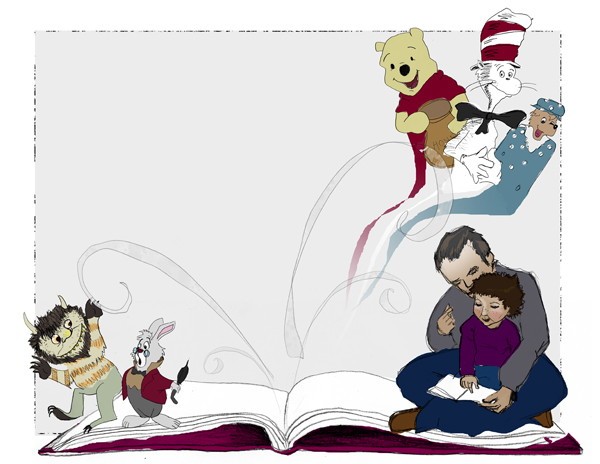Ladies and gentlemen, boys and girls…
Whether adults read it for nostalgia or escapism, children’s literature is a sure way to satisfy the child in us all
From Harry Potter to Twilight, children’s literature has attracted a lot of attention in recent years. But it’s not just kids creating the craze – adults are feeding the frenzy, too.
“We see adults getting just as excited [as kids]... around books like Harry Potter,” said Tamara Opar, Children’s and Teen Services librarian at the Millennium Library.
She explained that the library even added Twilight, a vampire fantasy novel by Stephanie Meyer marketed for a younger, pre-teen and teenage audience, to their “Bestsellers” section recently. The section previously featured only books aimed at adults.
So what is it about children’s literature that makes it so appealing for people whose grade-school years are long gone?
Perry Nodelman, a children’s book author and professor emeritus in the University of Winnipeg’s English department, said the appeal of reading children’s literature for him is found in its complex simplicities.
“I enjoy reading children’s books because it’s a kind of writing that seems very simple, but if you allow yourself to think about it…BAM! There is all kinds of stuff going on,” he said.
Nodelman just released his latest book, The Curse of the Evening Eye, which he co-wrote with Carol Matas. The book is part of a series, The Ghosthunters, intended for children, but that hasn’t stopped adults from getting in on the action.
“Even though it doesn’t have the market appeal of Twilight, a lot of adults have told me they’ve found themselves really enjoying reading it,” he said.
Opar sees adult enjoyment of children’s literature as a form of escapism in a complex world where adults are faced with the realities of the economic recession, relationship drama and many other challenges.
“ With a film adaptation of Where the Wild Things Are set to be released later this year, along with the next Harry Potter and Twilight films, it seems the fascination adults have with children’s literature shows no signs of ceasing
“[Children’s] books aren’t that complicated. People just enjoy reading them and blocking out the rest of their world for a little while.”
Jon Kornelsen, a second-year English/education student at the U of W, has his own theory about the appeal of children’s literature.
“I think a lot of it is because it is this huge nostalgia trip back to your childhood,” he said.
Kornelsen has experienced this himself.
“I had to read one of the books in the Animorphs series for this paper I was doing and I ended up reading three just because I enjoyed the nostalgia of it.”
When it comes to the study of children’s literature, having an adult perspective allows one to see elements of a story that go unnoticed by kids. In writing The Hidden Adult, a critical book that examines six canonical children’s books, Nodelman explored how these texts prescribe children’s behavior based on adult ideologies.
“What I realized was that…children’s books are the kinds of books that teach children how to be children,” he said.
Kornelsen explained that these adult ideologies can be seen in J.M. Barrie’s classic tale, Peter Pan. The idea of a child that doesn’t want to grow up is a notion created by adults who long for childhood and youth, and who struggle with the thought of their kids growing older.
“All kids want to grow up,” Kornelsen said. In this sense, he added, Peter’s desire to remain a child is really an adult desire to be youthful themselves and to keep their children from growing up too quickly.
In re-reading The Hardy Boys, Kornelsen has also come to see how children’s books can impose certain gender-role ideals on the young people reading them.
“In The Hardy Boys…the protagonists are portrayed as shining examples of masculinity based on the grounds that they are handsome, intelligent, resourceful and athletic. Reading these books could give boys the impression that in order to be ‘real men’… they must also be handsome, smart [and] athletic,” he said. “So in this way, The Hardy Boys series indirectly prescribes a certain gender role for boys to live up to.”
Kornelsen is fascinated by the perspective he has gained as an adult looking back at his childhood favorites.
“As a kid you don’t necessarily notice that, but when you are reading those texts [as an adult] you can see how those gender roles influenced you.”
With a film adaptation of Where the Wild Things Are set to be released later this year, along with the next Harry Potter and Twilight films, it seems the fascination adults have with children’s literature shows no signs of ceasing.
As Nodelman noted, “There is something magical about something that appears so simple, but isn’t.”
Published in Volume 63, Number 24 of The Uniter (March 19, 2009)







